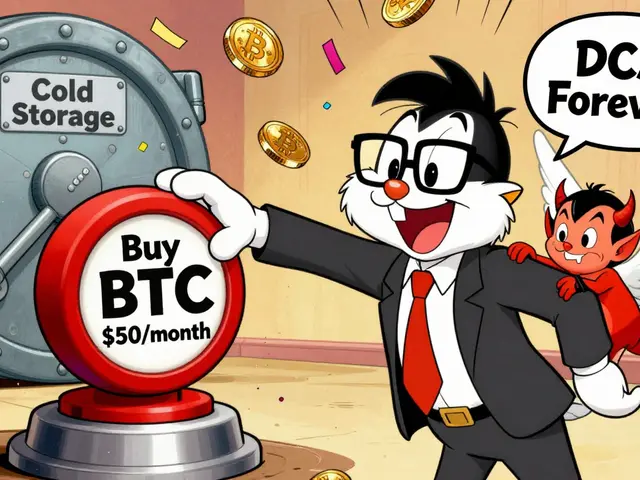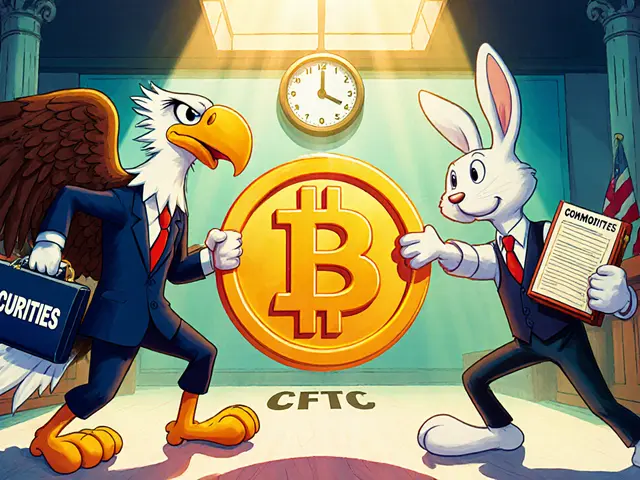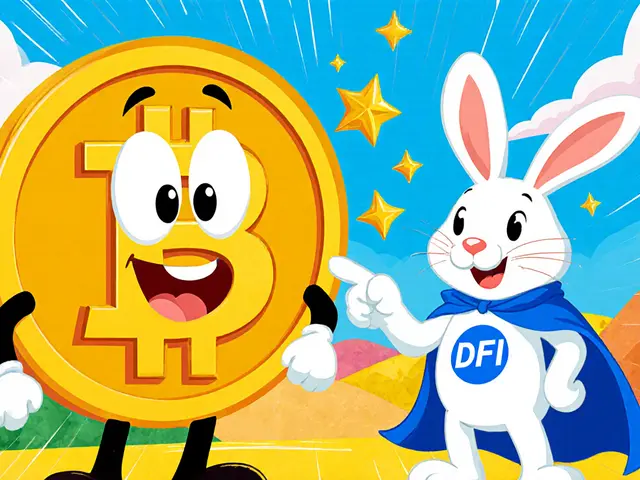
Tokenized Real Estate Investment Calculator
Traditional Real Estate
- Minimum Investment $20,000-$100,000+
- Liquidity Months to Years
- Transaction Cost 5-10%
- Income Distribution Manual Checks
Tokenized Real Estate
- Minimum Investment $50-$500
- Liquidity 24/7 Trading
- Transaction Cost 2-5%
- Income Distribution Smart Contract
Investment Analysis Results
Traditional Investment
Tokenized Investment
Comparison Summary
Imagine buying a slice of a downtown office tower for the price of a coffee. That's the promise of tokenized real estate - a new way to own property that swaps bricks and mortar for digital tokens on a blockchain.
Quick Take
- Fractional ownership lets investors start with as little as $50.
- Liquidity improves dramatically; tokens trade 24/7 like stocks.
- Smart contracts automate rent splits and ownership transfers.
- Global markets become reachable without currency or legal barriers.
- Transaction costs can drop 30% versus traditional deals.
What is Tokenized Real Estate Investment?
Tokenized Real Estate Investment is a digital representation of a physical property that lives on a blockchain, where each token equals a fractional ownership share. The concept started around 2017, and by 2025 dozens of platforms let anyone buy tokens backed by apartments, office blocks, or even undeveloped land.
How Blockchain Makes It Possible
Blockchain is a distributed ledger that records every transaction in an immutable, timestamped chain. Because the ledger is public, ownership history cannot be altered, which slashes fraud risk and boosts transparency for all parties.
Smart Contracts: The Automation Engine
Smart contracts are self‑executing code that enforce the rules of a token sale, ownership transfer, and rental‑income distribution without a middleman. Once a rent payment hits the contract, the programmed logic splits the cash among token holders instantly, cutting out brokers and lawyers.
The Token Itself - More Than Just Data
Token denotes a cryptographic asset that can be bought, sold, or held on a blockchain platform. Tokens are usually built on standards like ERC‑20 or ERC‑721, which guarantee compatibility across wallets and exchanges.
Why Investors Love It
Investor participation expands from ultra‑wealthy individuals to anyone with a modest smartphone budget. A 2023 EY survey showed 80% of high‑net‑worth investors and 67% of institutions already dabble in tokenized assets, and they expect to allocate up to 8.6% of their portfolios to such products by 2026.
Key Benefits Compared with Traditional Real Estate
| Aspect | Tokenized Real Estate | Traditional Real Estate |
|---|---|---|
| Minimum Investment | $50-$500 | $20,000-$100,000+ |
| Liquidity | 24/7 secondary-market trading | Months to years to sell |
| Transaction Costs | ~2-5% (blockchain fees) | 5-10% (legal, broker, escrow) |
| Geographic Reach | Global - anyone with internet access | Limited by jurisdiction & currency |
| Transparency | Open ledger, real‑time ownership data | Closed records, delayed reporting |
| Income Distribution | Automated via smart contracts | Manual checks, delays, higher admin fees |

Real‑World Numbers: Yield and Cost Savings
Average yields on tokenized properties hover around 11% annually, according to a Deloitte Center for Financial Services study. Rental income flows automatically to wallets, and transaction fees are up to 30% lower than the sum of legal, escrow, and brokerage costs in a conventional sale.
Case Study: The St.Regis Aspen Token Offering
Elevated Returns tokenized equity in the St.Regis Aspen resort and raised $18million from a global pool of investors. The deal gave participants exposure to a luxury asset that previously required multi‑million‑dollar commitments.
Industry Players and Ecosystem
Propy provides end‑to‑end tokenization services, handling KYC, smart‑contract deployment, and secondary‑market listings. Maticz focuses on tokenizing commercial real‑estate portfolios across NewYork, London, and Dubai, enabling cross‑border investors to buy fractional shares instantly. Deloitte identifies three pillars of the ecosystem: tokenized private funds, tokenized loan‑securitizations, and tokenized land projects - with loan‑securitizations expected to capture the biggest market share.
Regulatory Landscape and Compliance
Platforms now integrate digital KYC and AML checks directly into the onboarding flow, reducing paperwork for issuers. While regulators in the U.S., EU, and Asia fine‑tune securities rules, most token offerings comply with existing securities laws by registering as securities tokens.
Future Outlook: From $0.3T to $4T by 2035
Deloitte projects a compound annual growth rate of 27% for tokenized real estate, taking the market from under $0.3trillion today to $4trillion by 2035. The surge will be powered by institutional adoption, lower tech costs, and a growing appetite for diversified, liquid real‑estate exposure.
How to Get Started Today
- Choose a reputable tokenization platform (e.g., Propy, Maticz, or a regulated security‑token exchange).
- Complete the digital KYC/AML verification - usually a quick upload of ID and proof of address.
- Deposit funds (many platforms accept fiat and major cryptocurrencies).
- Select the property token(s) that match your risk tolerance and investment horizon.
- Monitor token performance on the platform’s dashboard; rental income will be auto‑credited to your wallet.
Potential Pitfalls to Watch
- Regulatory changes could affect token tradability in certain jurisdictions.
- Liquidity varies by platform; some tokens have thin order books.
- Smart‑contract bugs are rare but can lock assets temporarily.
- Underlying property performance still matters - do your due diligence before buying.
Frequently Asked Questions
What is the minimum amount needed to buy a real‑estate token?
Many platforms let you start with $50‑$100, which is enough to own a tiny slice of a larger property.
Are tokenized real‑estate investments regulated?
Yes. Most tokens are issued as security tokens and must comply with securities laws in the issuer’s jurisdiction, including KYC/AML checks.
How are rental earnings paid to token holders?
Smart contracts automatically split the rent each month and transfer the portion to each holder’s wallet, usually in stablecoins or fiat equivalents.
Can I sell my tokens at any time?
On most platforms you can trade 24/7 on a secondary market, though liquidity depends on the token’s popularity and order‑book depth.
What risks are unique to tokenized real estate?
Beyond typical real‑estate risk (vacancy, market downturn), you face blockchain‑related risks: platform security, smart‑contract bugs, and regulatory shifts.





